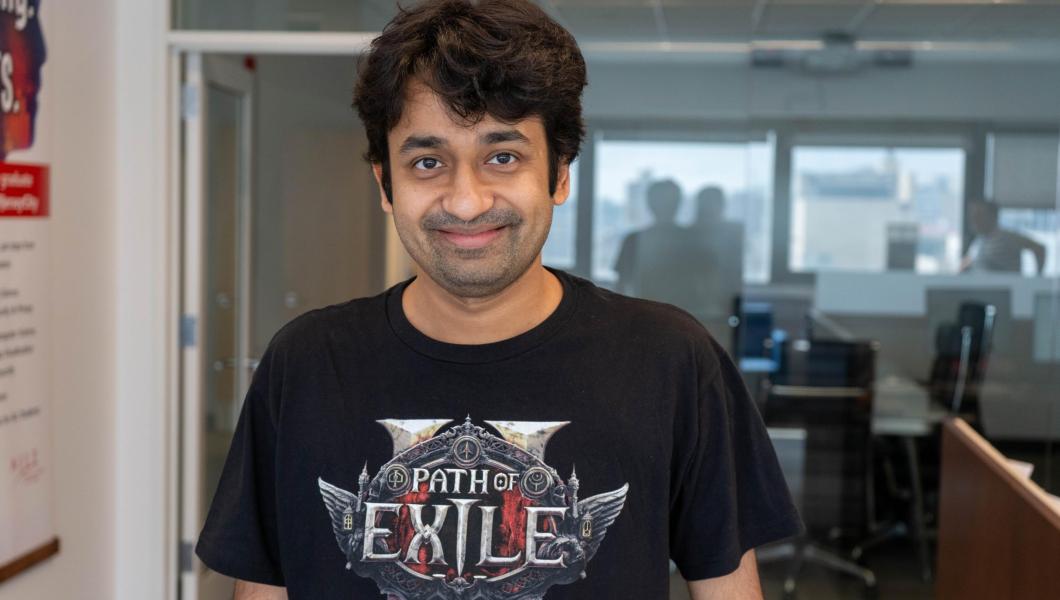NJIT Hosts Game Development Marathon for Global Game Jam

Nearly 100 budding game designers pulled all-nighters at NJIT for the Eleventh Annual Global Game Jam (GGJ) in what has become a much anticipated event for both design and information technology students.
Organized in 2008, GGJ, an international nonprofit corporation based in California, is the world’s largest game-development event. This year, 47,000 participants from 113 countries gathered at 860 sites worldwide to create 9,000 games. The free annual marathon offers anyone over the age of 18 the chance to design video games in a 48-hour window.
There were six sites in New Jersey alone, with NJIT — hosting for the ninth consecutive year — having the largest participation in the state as 95 jammers produced 16 games over the weekend. For the second consecutive year, NJIT had the sixth largest site hosted by a public university in the United States. The event was coordinated by information technology student Satchel Quinn and digital design student and president of NJIT SIGGRAPH, Jerry Bellone.
Registrants were greeted by College of Architecture & Design Dean Tony Schuman and School of Art + Design Director Glenn Goldman at the opening late Friday afternoon, Jan. 25. Coordinator of the digital design program, Augustus Wendell, presented the secret theme “what home means to you” to the attendees. Lecturer D.J. Kehoe from the information technology program presented an overview of games created at NJIT during previous iterations of the Global Game Jam.
NJIT was one of only two New Jersey schools to make The Princeton Review's list of the top 50 undergraduate schools to study game design. NJIT’s game development program is a collaborative effort, combining faculty and resources of the information technology and digital design programs. Students interested in the coding aspects of game design can pursue the B.S. in Information Technology in the Ying Wu College of Computing, while those interested in the art, character and environment design of games can pursue the B.A. in Digital Design within the College of Architecture and Design.
“Successful games can only be produced collaboratively and need a skillful combination of art and technology,” says Glenn Goldman, director of the School of Art + Design. “Players care how the games look, and how the games work. We even have students composing original audio for the games. It is this collaboration that makes the event so exciting and fun, and creates a community out of multiple programs, departments and colleges at NJIT.”
Goldman says the School of Art + Design is fortunate to operate in the context of a comprehensive research university, “where we can deal with all of the varied requirements for game design, and where we have the expertise needed to creatively produce engaging entertainment products. And these collaborations often continue after the event with new friends and business enterprises formed with connections made at the Global Game Jam.”

